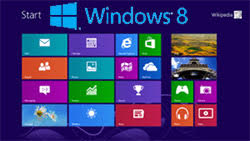Microsoft Ends Support for Win 8 and Old IE Versions, Could Spike Malware Intrusions
 Time and time again we stress the importance of keeping your software and operating system update on your PC. Such advice isn't reiterated just for giggles; it is to prevent malicious infections from installing on your computer or exploiting vulnerabilities caused by outdated software that hackers and cybercrooks have found gaping holes in its security.
Time and time again we stress the importance of keeping your software and operating system update on your PC. Such advice isn't reiterated just for giggles; it is to prevent malicious infections from installing on your computer or exploiting vulnerabilities caused by outdated software that hackers and cybercrooks have found gaping holes in its security.
With the announcement this week from Microsoft stating that they will be ending support for Windows 8 and older versions of their Internet Explorer web browser, IE 8, IE 9, and IE 10, we suspect there will be a major influx of malware threats on systems utilizing the soon-to-be outdated software. When it comes to prevention of malware, updated applications are one of the best and easiest methods for thwarting new malicious threats.
What happens when software becomes outdated is cybercrooks and hackers find vulnerabilities that can be exploited. Upon finding such issues within outdated software, hackers can continually exploit them and infect systems running the outdated apps with malware. When computers have their software updated, many of the bugs and vulnerabilities are fixed and removed through security patches or full-on software version updates. With Microsoft ending support for Windows 8 and all older versions of Internet Explorer, it will naturally open the operating system and web browser up to serious issues where newly-discovered vulnerabilities and bugs are exploited by hackers.
Microsoft is suggesting to users who wish to remain on Internet Explorer immediately upgrade to the new version, IE 11. Microsoft iterates that Internet Explorer 11 offers better security, backward compatibility, improved performance, and support for new web standards. If users choose not to move to Windows 10, which includes a copy of the newest Edge browser, Internet Explorer 11 will be supported while running on Windows 7, Windows 8.1, and Windows 10.
The support for Windows 7 and Windows 8.1 will remain in place where updates, security patches, and bug fixes will be rolled out as they are needed.
Most experts believe that Microsoft's abrupt stop to supporting Windows 8 and older versions of Internet Explorer is an additional push to have users move towards Windows 10 and the new Edge web browser. While Windows 10 demonstrates strong, steady growth in adoption and usage rates, there is a multitude of systems still running Windows 8, which will be a new breeding ground for malware as new vulnerabilities and bugs will never be fixed and later exploited by hackers and cybercrooks.
There is no doubt that malware intrusions will spike to off-the-scale levels when it comes to attacking users who still use Windows 8 and old versions of Internet Explorer. Already, Internet Explorer is one of the most exploited and malware-infiltrated web browser applications around. The end of security patches and support for the browser only means propagation of malware at unprecedented levels.
As an obvious suggestion, computer users who utilize Windows 8 or older versions of Internet Explorer should take action now rather than later to update to Windows 8.1 and either use a different web browser application or update to Internet Explorer 11. Failing to update Windows 8 and Internet Explorer will reassure your path to malware infections on your computer.